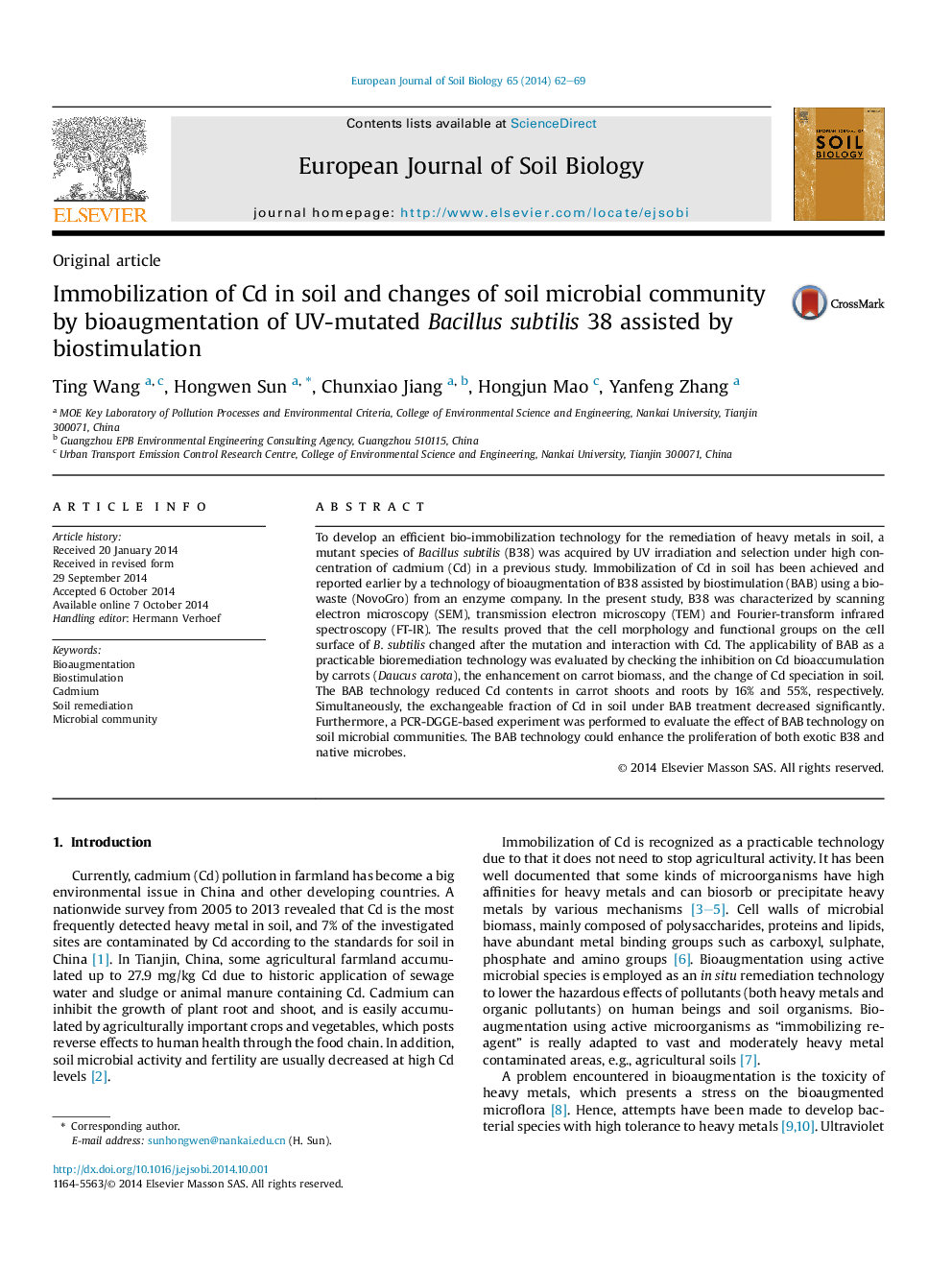| Article ID | Journal | Published Year | Pages | File Type |
|---|---|---|---|---|
| 4391864 | European Journal of Soil Biology | 2014 | 8 Pages |
•Bioaugmentation assisted by biostimulation (BAB) is a promising remediation approach.•The morphology of the B38, a UV-mutant species changed after mutation.•More functional groups were found in B38, leading to its high Cd fixing capacity.•The positive effect of B38 could exhibit only in BAB technology.•BAB technology could enhance the growth of both exotic B38 and native microbes.
To develop an efficient bio-immobilization technology for the remediation of heavy metals in soil, a mutant species of Bacillus subtilis (B38) was acquired by UV irradiation and selection under high concentration of cadmium (Cd) in a previous study. Immobilization of Cd in soil has been achieved and reported earlier by a technology of bioaugmentation of B38 assisted by biostimulation (BAB) using a bio-waste (NovoGro) from an enzyme company. In the present study, B38 was characterized by scanning electron microscopy (SEM), transmission electron microscopy (TEM) and Fourier-transform infrared spectroscopy (FT-IR). The results proved that the cell morphology and functional groups on the cell surface of B. subtilis changed after the mutation and interaction with Cd. The applicability of BAB as a practicable bioremediation technology was evaluated by checking the inhibition on Cd bioaccumulation by carrots (Daucus carota), the enhancement on carrot biomass, and the change of Cd speciation in soil. The BAB technology reduced Cd contents in carrot shoots and roots by 16% and 55%, respectively. Simultaneously, the exchangeable fraction of Cd in soil under BAB treatment decreased significantly. Furthermore, a PCR-DGGE-based experiment was performed to evaluate the effect of BAB technology on soil microbial communities. The BAB technology could enhance the proliferation of both exotic B38 and native microbes.
